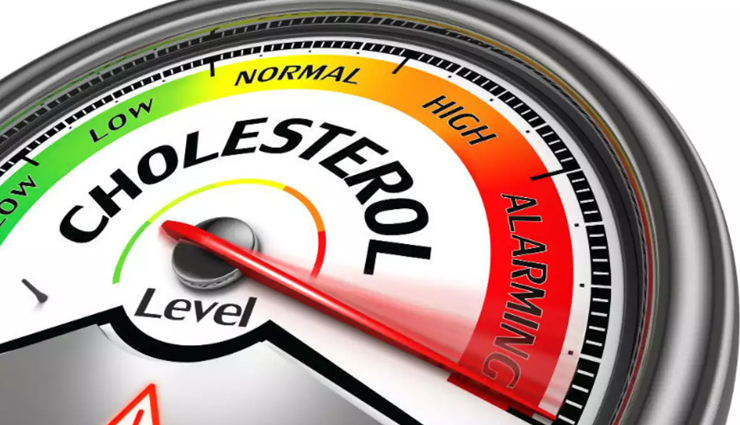- Home›
- Healthy Living›
- 7 Health Benefits Of Eating Spinach
7 Health Benefits Of Eating Spinach
By: Kratika Thu, 29 July 2021 9:00:10

Spinach is a green leafy vegetable that belongs to the Amaranthaceae family and is native to western and Central Asia. This superfood provides numerous health and beauty benefits due to the presence of essential nutrients like vitamins, minerals, antioxidants, phytonutrients, and dietary fibers, etc.

# Good For Eyes
Spinach is good for the eyes, the visionary organ that allows us to enjoy the beauty of this world.
Antioxidants like vitamin C, vitamin A and other relevant antioxidantal compounds like phytonutrients and polyphenols protect the eyes from free radical damage, and thus minimizes the risk of age-related macular degeneration, cataract, and glaucoma, etc.
Vitamin A is an essential mineral for the eyes as it improves vision. Deficiency of this nutrient may increase the risk of night blindness, prevents dryness of eyes, and eye-itchiness.
As per research conducted by Oak Ridge National Laboratory, consuming spinach regularly minimizes the risk of age-related macular degeneration.
The anti-inflammatory properties of vitamin C minimize irritation and puffiness of the eyes.

# Provides Neurological Benefits
Spinach is good for the brain and improves our neurological health.
Antioxidants like vitamin C, vitamin A, vitamin K and other antioxidantal compounds like phytonutrients and polyphenols protect the brain cells aka neurons from free radical damage, and thus minimizes the risk of various neurodegenerative diseases like Parkinson’s disease, Alzheimer’s disease, amnesia, and dementia, etc.
Folate in the spinach plays an important role in the growth and development of the brain and minimizes the risk of neural tube defects like spina bifida etc.
Other nutrients like iron, potassium, magnesium and B vitamins, etc in the spinach provide several cognitive benefits like a sharper memory, better focus, improved concentration, reduced mental confusion, etc.

# Regulates High Blood Pressure
Potassium, a natural vasodilator present in the spinach relaxes our blood vessels, improves blood circulation, and thus provides relief from hypertension or high blood pressure.
Hypertension or high blood pressure is a common health problem that affects millions of people around the world and is a leading cause of several cardiovascular and other health problems like severe headaches, nosebleed, fatigue, chest pain, heart attack, heart stroke, irregular heartbeat, difficulty in breathing, blood in the urine, etc.
Although spinach aids in regulating high blood pressure, consume it in moderation as excessive intake may drop the blood pressure to an abnormally low level within an increased risk of hypotension that gives rise to symptoms like dizziness, nausea, fainting, dehydration, blurred vision, lack of concentration, and pale skin, etc.
If you are already on blood pressure medication, then consult your doctor before adding spinach to the diet to avoid the risk of food-drug intolerance.

# Strengthens Heart Muscles
An antioxidantal compound called “C0-Q10” present in the spinach strengthens the heart muscles and improves our cardiovascular health.
As per the Journal of Cardiovascular Nursing, C0-Q10 helps in the prevention and treatment of various cardiovascular problems like hyperlipidemia, hypertension, and coronary artery disease.

# Strengthens Bones And Teeth
Spinach strengthens our bones and teeth due to the presence of bone-strengthening minerals like calcium, potassium, vitamin K, and magnesium, etc in it.
Calcium, a vital mineral present in the spinach is needed for the growth and development of the bones, and lack of this mineral may increase the risk of bone disorders like osteoporosis.
Osteoporosis is a condition in which our bones become weak and fragile, and are at a higher risk of damage and fracture.
Spinach contains vitamin K that aids with calcium retention in the bones, and thus improves bone density.
Potassium, a vital mineral in the spinach neutralizes acid, prevents loss of calcium from bones, and thus improves bone density.
Magnesium and B vitamins also play an important role in strengthening our bones and teeth.

# Maintain Proper Metabolism
Spinach improves our metabolism and helps with the proper growth and development of the body.
Spinach contains several proteins that are broken down into amino acids by the digestive enzymes present in the body.
Amino acids are the building blocks of the body as it helps in growth and development of the muscles, and helps with quick healing of the wounds.
Spinach improves our metabolism, aids with digestion and proper absorption of nutrients from the food.
Thylakoid present in the spinach restrains carving, controls overeating, and helps with weight management.
Spinach protects the mucous membrane of the stomach and minimizes the occurrences of gastric ulcers.

# Reduces LDL Cholesterol
The dietary fibers present in the spinach reduces LDL cholesterol and helps in managing cholesterol levels. This prevents the accumulation of plaque and fat deposits in the arterial walls and minimizes the risk of atherosclerosis.
Atherosclerosis is a condition that leads to hardening and narrowing of the arteries due to the accumulation of plaque and fat deposits in the arterial walls and is a leading cause of cardiovascular problems like heart attack, heart stroke, and coronary artery disease.





